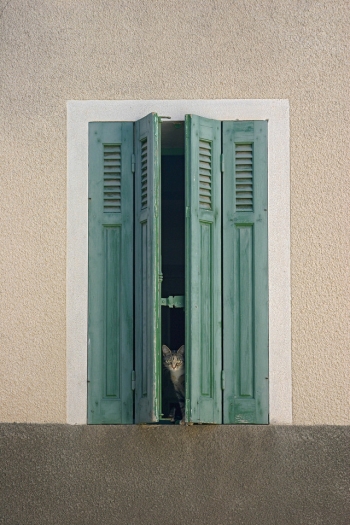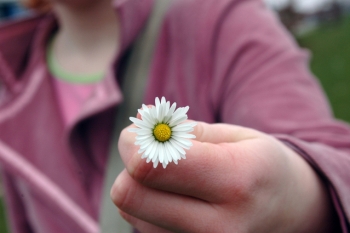
Blog (435)
My hope is to offer encouragement to writers as well as those who simply love to read. You will find eclectic snippets here—news of projects I’m working on, comments regarding books I enjoy, favorite authors, quotes, and reflections regarding my own experiences. I especially like to write about my dreams—those parables in the night seasons. Symbols and metaphors delight and intrigue me. You will find them here.
Knowing what is right is like deep water in the heart, a wise person draws from the well that is within.~Proverbs 20:5 (The Message)
I sat in the chair, metaphorically tying myself down with ropes so that I would not allow the enchanting songs of the sirens to lure me to the territory of self-pity. I wanted to go there, my body wracked with allergies and fatigue, my chest sore from chronic sneezing. I'd never experieced allergies in my life, and now while in Italy I felt miserable as I encountered the springtime pollen. I told Giovanni I couldn't go on the outing. I needed to stay inside and rest--let the allergy medication kick in. I resisted the desire to allow self-pity to overtake me and decided to write a short story, creating a protagonist who faced a difficult decision and opted to choose what was right, what was true. I entitled the piece, Siren's Melody.
The next day, Giovanni and I traveled to the Amalfi Coast. My allergies continued to bother me, but I had medication that took the edge off, and we had reached our goal to make it to the coast. This feat alone was something to celebrate. And yet again, disappointment. Clouds hemmed us in on all sides, the azure Mediterranean that I so longed to see, now invisible. Only fog and clouds. I had to smile as I noted the name of the bed and breakfast where we stayed: Il Canto Delle Sirene--The Song of The Sirens. I sensed God saying to me, "Keep choosing to discover beauty and joy, no matter your circumstances. Don't allow the steep cliffs of negativity and self-pity to tempt you to a place of demise."
You strengthened me deep within my soul, and breathed fresh courage into me.~Psalm 138:3 (The Passion Translation)
There are things that take all we have. Things that we take part in because we know that ultimately they are the things that make us better, that pull us up and out of complacency and make our lives more excellent. In the next weeks, I have the opportunity to engage with another culture and exit my American comfort zone. I am not fully prepared. I am not fluent in the language, though I have been practicing and studying the beautiful Italian words. In past trips to my husband's homeland, I have often surrendered to feelings of anxiety and negative thought patterns that paralyze me. This time, I have decided not to allow this kind of self-sabotage.
Here is my plan:
Nostalgia in reverse, the longing for yet another strange land grew especially strong in spring.~Vladimir Nabokov
There are so many reminders. Spring. That time of the year when hints of another Kingdom surround me. All the senses on overload. But I'd blocked out the beauty with my obsession on getting things done--my incessant lists. Obligations. I could feel the panic rising--how would I ever prepare to leave work to go on vacation? Wasn't annual leave supposed to be something to look forward to? My desk was stacked. How would I ever plough through it all? A row of blooming azaleas in all their frothy pinkness interrupted the anxiety. Why wasn't I noticing the beauty all around me? Why was I fretting during this resplendent season?
Life barrels by in all its ordinariness and uncanny beauty.~Journal entry, March 10, 2007
I am fortunate to have a life filled with rich correspondence. On a regular basis I hear from readers sharing their lives with me. I am humbled to be allowed into these spheres--persons from diverse age groups and ethnicities. I am often amazed at peoples' resiliency and creativity as they forge their way through life's arcs and curves; how people patch up their hearts when they've reached a dead end. I'm gladdened by the courage I witness when a reader tells me they've taken a step out of a comfort zone to perform at an open mic or submit a piece they've written. Post their art on twitter. Write a poem. Get out their paints. I'm overwhelmed with joy to see career doors open when there's been little hope, perseverance the norm for years. I weep with those who are caring for elderly parents with little margin in their days, weary from the exhausting investment of love and caring. I rejoice with those parenting young children, tackling such a huge task in this culture. I champion those coming to the close of work lives, envisioning retirement, feeling young. My readers are gracious with their feedback. They enlarge my heart with their kindness. "I resonated with what you wrote." "I feel encouraged today just knowing I'm not alone." It is comforting to know that we have connection, that we don't walk the pathway by ourselves. Just this week, I received a text from a young woman who is helping me with my latest manuscript. I'm honored that she has taken the time from her life to provide input for me. She writes, "It's a joy to partner with you." How we need each other, this life a collaboration.
Often, for me, it is important to gain encouragment from those that have gone before me. They are enduring voices that illuminate the darkness. Here are a few voices I thought you might like...
Mysteries, Yes
Truly we live with mysteries too marvelous to be understood.
How grass can be nourishing in the mouths of lambs.
How rivers and stones are forever in allegiance with gravity while we ourselves dream of rising.
How two hands touch and the bonds will never be broken.
How people come, from delight or the scars of damage, to the comfort of a poem.
Let me keep my distance, always, from those who think they have the answers.
Let me keep company always with those who say "Look!" and laugh in astonishment, and bow their heads. ~Mary Oliver
What will I pack this time? My ninth trip across the ocean to my husband's homeland. Italy. In the past, I've packed too much. Too many pairs of shoes. Clothes I never wore. Freighted. Weighted down. "This time will be different," I say to myself. I look at my new suitcase, the color of eggplant. I place a few garments and some tolietries inside. A hat. My journal. I lift the small bag. If I had to, I could carry the luggage for miles, it's so lightweight. The "mystery" of "less is more."




